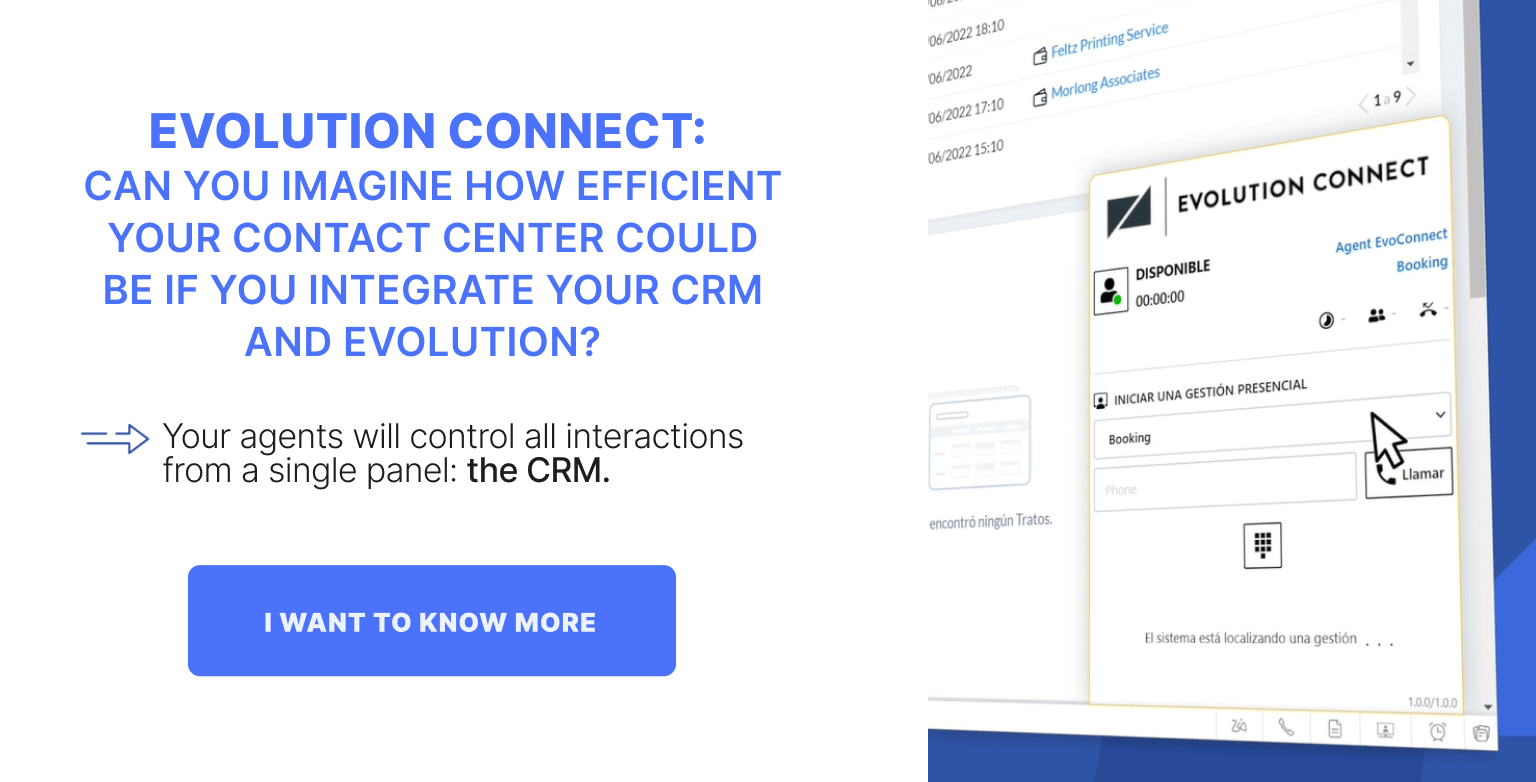Customer satisfaction is an absolute priority in today’s business world, that’s clear. We understand that customers’ demands are increasing. Customers know that companies can do even more for them, and businesses must double their efforts to meet customer expectations. Contact centers play a crucial role in achieving this goal: in many cases, they are the only touch point between the company and the customer.
That’s why the focus should be on achieving the highest level of personalization (some people even talk about hyper-personalization) to differentiate ourselves from our competitors and those offering a standard service. In this article, we will explore the importance of personalization in contact centers and how it can lead to business success.

Understanding the importance of personalization in the contact center
Personalization in the contact center refers to the ability to adapt and adjust the customer experience according to their individual needs. This involves knowing the customer on a deep level, understanding their preferences and anticipating their desires. Personalization is not just limited to treating the customer by name, but involves understanding their specific needs and providing personalized solutions. This creates a stronger bond between the company and the customer, which in turn leads to greater loyalty and satisfaction.
According to an analysis by TouchPoints, more than 50% of buyers are willing to share personal information so that a company offers them products of interest and personalized offers. This means that the margin for growth is enormous and that the predisposition on the side of customers is high to throw ourselves headlong into working with personalization strategies.
However, personalization in the contact center is a job that cannot be done overnight. It involves time and dedication to collect information, put together a profile of each customer, analyze consumption patterns and trends, and more. Technology is the key that enables all these processes.
Benefits of personalization in Customer Service
Personalization in customer service offers numerous benefits for both companies and customers. First of all, personalization helps strengthen the relationship between both parties. By offering a service adapted to the customer’s needs and preferences, it’s created a sense of trust and loyalty towards the company. This can result in greater customer loyalty and the generation of positive referrals.
Additionally, personalization can help drive sales and business growth. By knowing customers in depth, companies can identify additional sales opportunities (upselling or cross-selling) and offer personalized products or services that meet their more specific needs. This can not only increase revenue, but also improve customer satisfaction as they feel valued and cared for on an individual basis.
Lastly, personalization in Customer Service can help reduce operating costs. By understanding customer needs, agents can resolve issues more efficiently and reduce call duration. This can result in increased productivity and, as a consequence, reduced operating costs.
The role of technology in the personalization of contact centers
Technology plays a crucial role in the personalization of contact centers. An omnichannel solution like EVOLUTION is prepared to record all interactions with customers, regardless of the channel where the communication began. This way you can have a historical record, to which are added comments from agents about steps to follow, requests, extra information and more.
On the other hand, tools such as customer relationship management (CRM) systems allow agents to quickly access relevant information about customers and offer even more personalized service. These systems store data about preferences, purchase history, previous queries, etc. If you integrate CRM + contact center software, the results will be optimal. Our software EVOLUTION can be integrated natively with leading CRMs such as Salesforce, Zoho or Microsoft Dynamics, but also with any system through APIs.

Artificial intelligence and training for personalization in the contact center
Additionally, artificial intelligence and machine learning are revolutionizing the way contact centers personalize the customer experience. These technologies allow agents to anticipate customer inquiries and offer personalized recommendations or solutions in the moment.
However, it is important to note that technology alone is not enough. Contact centers must ensure they have trained staff with the necessary skills to use these tools effectively. Technology is a powerful tool, but it is people who must make the most of it to offer an outstanding experience.
Strategies to implement personalization in the contact center
Implementing personalization in the contact center requires a solid strategy. Here are some key strategies you can use to personalize the customer experience:
- Effective data collection: Contact centers must collect relevant data about customers to have a complete profile of their needs and preferences. This may include demographic information, purchase history, communication preferences, and more.
- Data Analysis: Once data has been collected, it is important to analyze it to identify patterns and trends. This can help identify customization opportunities and improve contact center efficiency.
- Customer segmentation: Customers can be divided into different segments based on their characteristics and needs. This allows us to offer a service specifically tailored to each segment and adapt communication and marketing strategies.
- Staff training: Agents should receive appropriate training on how to personalize the customer experience. This includes communication skills, empathy and knowledge of the technological tools used.
- Customer feedback: It is important to request and use customer feedback to continually improve personalization. Customers can provide valuable feedback about their experiences (which may be very different from what we imagine) and suggest areas for improvement.

Good practices to provide personalized customer service
To provide customer service that is personalized and quality, follow these good practices:
- Active listening: This involves paying real attention to their needs and concerns, and responding in an appropriate and timely manner.
- Clear and effective communication: This means using simple, everyday language and avoiding the use of technicalities or jargon that could confuse the customer.
- Quick response time: This can be helped by using live chat tools or chatbots to solve simple queries immediately.
- Proactivity: The secret lies in offering solutions before the customer requests them or providing personalized recommendations before they are expressed.
- Personalization across channels: Personalization should extend to all communication channels, including phone calls, emails, live chats, instant messaging, and social media.
Training and development of personalization for contact center agents
Personalization in the contact center cannot be achieved without trained contact agents with the necessary skills to carry it out. Adequate training and development of agents is essential so that they can offer adequate service. Some key areas of training include:
- Communication Skills: Agents should receive training in effective communication skills, including active listening, empathy, and body language.
- Knowledge of the product or service: They must have a deep knowledge of the product or service they are providing. This allows them to easily offer personalized recommendations and solutions, without having to consult other sources or validate information.
- Technological skills: Agents must know perfectly the technological tools used in the contact center, such as omnichannel software or CRM.
- Problem resolution: This skill will help agents be effective and assertive when addressing conflicts or problematic solutions, that in the contact center can be very varied.
Conclusions: The future of customer-focused contact centers
In conclusion, personalization is the key to success in customer-focused contact centers. By offering a service tailored to customer needs and preferences, companies can improve customer satisfaction and loyalty, boost sales, and reduce operating costs. Technology is essential in this process, but we must remember that people use technology to offer an experience based on personalization and quality. With proper agent training and development, contact centers can achieve success in a world that has long revolved around customers.
Contact us today to see a demo of our software and find out how we can help you implement personalization in your contact center!





